Reviewers v
Preface vii
Acknowledgments ix
Unit I Introduction to Mental Health and Mental Illness
Chapter 1 Mental Health and Mental Illness 1
Defining Mental Health and Mental Illness 2
Mental Health 2
Mental Illness 2
Cultural, Ethnic, and Religious Influence? 2
Cultural Heritage-Beliefs, Norms, and Values 3
Factors that Affect Mental Health 3
Stress and Anxiety 5
Grief and Loss 9
Chapter 2 The Delivery of Mental Health Care 18
Historical Advancement of Mental Health Care 19
Early Civilizations 19
The Beginning of Change 19
Twentieth Century Progress 20
Community-Based Care 20
Current Issues in Mental Health Care 21
Access to Care: Cultural Disparities 21
Legal and Ethical Considerations in Mental Health Care 23
Client Rights 24
Use of Seclusion and Restraint 26
Nurse Accountability 27
Practice Settings for Mental Health Care 27
Inpatient Psychiatric Settings 27
Outpatient Mental Health Settings 28
Nonpsychiatric Health Care Facilities 28
Chapter 3 Theories of Personality Development 38
Personality 39
Individual Needs and Behavior 39
Temperament 40
Theories of Personality Development 40
Sigmund Freud (Psychoanalytic Theory) 40
Erik Erikson (Psychosocial Developmental Theory) 43
Jean Piaget (Cognitive Development Related to Personality) 47
Lawrence Kohlberg (Theory of Moral Development) 48
Harry S. Sullivan (Theory of Interpersonal Development) 48
Hildegard Peplau (Psychodynamic Nursing) 48
Murray Bowen (Family Systems Theory) 49
Other Theories 50
Unit II Mental Health Care
Chapter 4 Treatment of Mental Illness 55
Establishing a Therapeutic Milieu 56
Treatment Team 57
Interdisciplinary Team Members 57
Role of the Nurse 59
Types of Therapy 60
Psychotherapy 60
Group Therapy 62
Biomedical Therapy 62
Electroconvulsive Therapy 62
Other Type, of Therapy 63
Pharmacological Agents and Mental Illness 63
Symptom Categories of Psychiatric Disorders 64
Classification of Psychotropic Drug Agents 64
Action of Psychotropic Drags on Neurotransmitters 64
Psychotropic Drug Agents and the Older Client 65
Chapter 5 Establishing and Maintaining a Therapeutic Relationship 70
The Therapeutic Relationship 71
Important Characteristics for Establishing a Nurse-Client Relationship 71
Phases of a Therapeutic Relationship 72
Professional Boundaries 73
Response to Difficult Client Behaviors 74
Manipulation 75
Violence or Aggression 75
Altered Thought Process (Hallucinations, Illusions, Delusions) 75
Sexually Inappropriate Behaviors or Aggression 76
Chapter 6 Dynamics of Anger, Violence, and Crises 81
Dynamics of Anger and Aggression 82
Defining Anger 82
Trait Anger 82
Expressing Anger and Resentment 82
Unrestrained Anger and Violence 83
Influencing Factors for Violence 83
Managing Anger 86
Crisis and Intervention 88
Types of Crises 88
Crisis Intervention 89
Suicide 90
Risk Factors 90
Risk Assessment and Intervention 91
Steps for Prevention 91
Unit III Fundamental Nursing Roles in Mental Health Nursing
Chapter 7 Communication in Mental Health Nursing 95
Communication in Mental Health Nursing 96
Speech Patterns Common to Clients with Mental Illness 96
Therapeutic Communication 97
Verbal Communication 97
Nonverbal Communication Techniques 98
Active Listening 99
Nontherapeutic Communication 99
Chapter 8 The Nursing Process in Mental Health Nursing 105
Understanding the Nursing Process for Mental Health Nursing 106
Psychosocial Assessment 106
Subjective Data 107
Objective Data 108
Nursing Diagnosis 108
Planning Expected Outcomes 109
Implementation of Nursing Interventions 109
Evaluation 111
Sample Application of the Nursing Process 112
Client Situation 112
Nursing Assessment 112
Unit IV Specific Psychiatric Disorders
Chapter 9 Anxiety Disorders 117
Types of Anxiety Disorders 118
Generalized Anxiety Disorder 118
Panic Disorder 119
Specific Phobia 121
Social Anxiety Disorder (Social Phobia) 122
Posttraumatic Stress Disorder (Trauma and Stressor-Related Disorders) 123
Obsessive-Compulsive Disorder 125
Treatment of Anxiety Disorders 126
Antianxiety Agents 127
Application of the Nursing Process to the Client with an Anxiety Disorder 129
Nursing Assessment 129
Nursing Diagnosis 131
Expected Outcomes 131
Nursing Interventions 131
Evaluation 132
Chapter 10 Mood Disorders 136
Introduction 137
Mood and Affect Defined 137
Depressive Disorders 137
Major Depressive Disorder 137
Persistent Depressive Disorder (Dysthymia) 139
Bipolar and Related Disorders 140
Signs and Symptoms 140
Incidence and Etiology 141
Cyclothymic Disorder 142
Treatment of Depressive Disorders 142
Antidepressants 143
Treatment of Bipolar and Related Disorders 146
Application of the Nursing Process 149
Assessment 149
Selected Nursing Diagnoses 150
Expected Outcomes 151
Nursing Interventions 151
Specific Interventions for a Suicidal Client 152
Evaluation 153
Chapter 11 Psychotic Disorders 158
Introduction to Psychotic Disorders 159
Psychosis 159
Types of Psychotic Disorders 161
Schizophrenia 161
Treatment of Psychotic Disorders 165
Antipsychotic Drug Agents 166
Autiparkinson Drug Agents 171
Psychotropic Drugs and the Older Client 171
Application of the Nursing Process 172
Assessment 172
Selected Nursing Diagnoses 173
Expected Outcomes 173
Interventions 173
Evaluation 175
Chapter 12 Personality Disorders 181
Introduction 182
Types of Personality Disorders 182
Cluster A Personality Disorders 182
Cluster B Personality Disorders 185
Cluster C Personality Disorders 191
Treatment of Personality Disorders 193
Application of the Nursing Process 194
Assessment 194
Selected Nursing Diagnoses 195
Expected Outcomes 195
Interventions 195
Evaluation 196
Chapter 13 Somatic Symptom and Related Disorders 201
Introduction 202
Types of Somatic Disorders 202
Somatic Symptom Disorder 202
Illness Anxiety Disorder (Formerly Hypochondriasis) 204
Conversion Disorder (Functional Neurologic Symptom Disorder) 205
Factitious Disorder 206
Application of the Nursing Process 207
Nursing Assessment 207
Selected Nursing Diagnosis 208
Expected Outcomes 208
Interventions 209
Evaluation 210
Chapter 14 Dissociative Disorders 215
Introduction 216
Types of Dissociative Disorders 216
Dissociative Amnesia 216
Dissociative Amnesia with Dissociative Fugue 217
Dissociative Identity Disorder 218
Depersonalization/Derealization Disorder 220
Treatment of Dissociative Disorders 220
Application of the Nursing Process 221
Nursing Assessment 221
Nursing Diagnoses 221
Expected Outcomes 222
Nursing Interventions 222
Evaluation 223
Chapter 15 Substance-Related Disorders 227
Substance Use, Abuse, and Addiction 228
Substance Abuse 228
Addiction 228
Phases of Substance Dependency 229
Classes of Substances 230
Theoretical Approaches to Substance Use and Abuse 231
Codependence: A Family Disease 232
Substance-Induced Disorders 233
Substance Intoxication 233
Substance Withdrawal 234
Substance-Specific Use Disorders 234
Alcohol- Use Disorder 241
Cannabis-Use Disorder 242
Hallucinogen-Use Disorder 242
Inhalant-Related Disorders 245
Opioid-Related Disorders 245
Stimulant-Use Disorder 246
Caffeine-Use Disorder 247
Nicotine-Use Disorder 248
Sedative-, Hypnotic-, or Anxiolytic-Use Disorders 248
Substance Abuse by Health Care Professionals 249
Treatment of Substance-Related Disorders 250
Detoxification 251
Treatment Programs 251
Application of the Nursing Process 251
Assessment 251
Selected Nursing Diagnosis 253
Expected Outcomes 253
Interventions 255
Evaluation 258
Chapter 16 Eating Disorders 263
Introduction 264
Types of Eating Disorders 264
Anorexia Nervosa 264
Bulimia Nervosa 267
Binge-Eating Disorder 269
Treatment of Eating Disorders 270
Application of the Nursing Process 271
Assessment 271
Selected Nursing Diagnoses 271
Expected Outcomes 272
Interventions 272
Evaluation 272
Chapter 17 Sexual Disorders 278
Introduction 279
Types of Sexual Disorders 279
Sexual Dysfunction Disorders 279
Paraphilic Disorders 282
Gender Dysphoria Disorder 284
Treatment of Sexual Disorders 286
Application of Nursing Process to the Client with a Sexual Disorder 286
Assessment 286
Selected Nursing Diagnoses 286
Expected Outcomes 286
Interventions 287
Evaluation 287
Unit V Age-Specific Disorder and Issuer
Chapter 18 Disorders and Issues of Children and Adolescents 291
Introduction 292
Types of Mental Disorders in Children and Adolescents 292
Neurodevelopmental Disorders 292
Language and Communication Disorders 294
Speech Sound Disorder 294
Autism Spectrum Disorder 295
Attention Deficit/Hyperactivity Disorder 296
Specific Learning Disorders 299
Disruptive, Impulse-Control, and Conduct Disorders 300
Oppositional-Defiant Disorder 300
Intermittent Explosive Disorder 300
Conduct Disorder 302
Anxiety Disorders 302
Separation Anxiety Disorder 302
Tic Disorder (Tourette’s Disorder) 303
Elimination Disorders 304
Signs and Symptoms 304
Incidence and Etiology 304
Treatment of Child and Adolescent Disorders 304
Neurodevelopmental Disorders 305
Learning and Communication Disorders 305
Anxiety Disorders 305
Elimination Disorders 305
Application of the Nursing Process 306
Assessment 306
Selected Nursing Diagnoses 306
Expected Outcomes 306
Interventions 307
Evaluation 307
Chapter 19 Disorders and Issues of the Older Adult 312
Introduction 313
Mental Health Care for Older Adults 313
Psychosocial Issues Related to Aging 313
Impaired Cognitive Functioning 314
Types of Mental Disorders in the Older Adult 314
Delirium 314
Dementia 315
Treatment of Neuroeognitive Disorders in the Older Adult 322
Application of the Nursing Process for Delirium 324
Assessment 324
Selected Nursing Diagnoses 324
Expected Outcomes 324
Interventions 324
Evaluation 326
Application of the Nursing Process for Dementia 326
Assessment 326
Selected Nursing Diagnoses 327
Expected Outcomes 327
Interventions 327
Evaluation 329
Appendices
Appendix A DSM 5 Classification of Mental Disorders 333
Appendix B Nanda-I Nursing Diagnoses Most Frequently Used in Mental Health and Psychiatric Settings 342
Appendix C Anxiety Scale (Sample) 348
Appendix D Answers to Student Worksheet 349
Glossary 363
Index 375

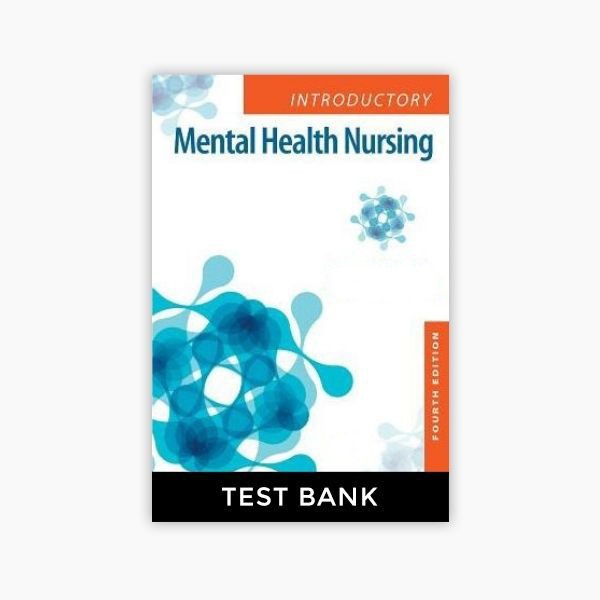




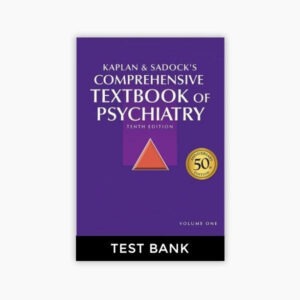
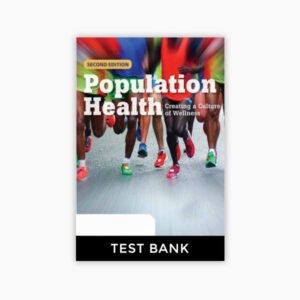

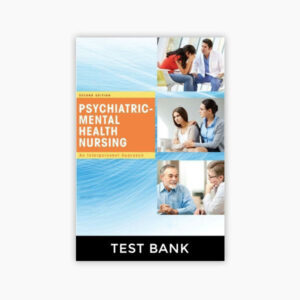

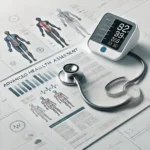
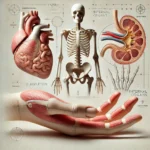




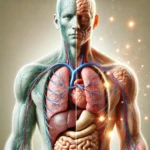


Reviews
There are no reviews yet.